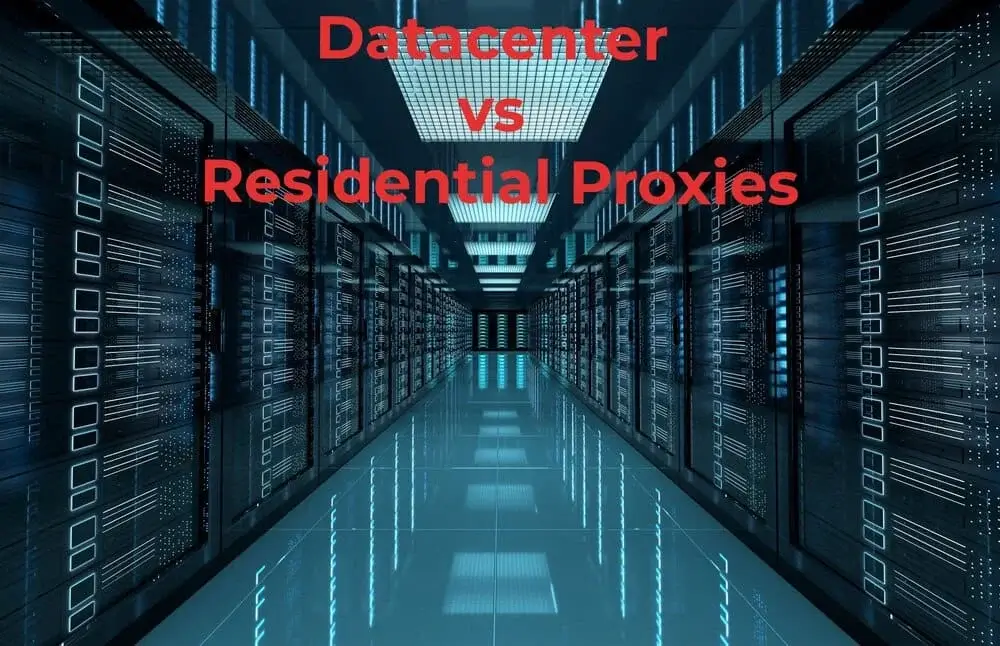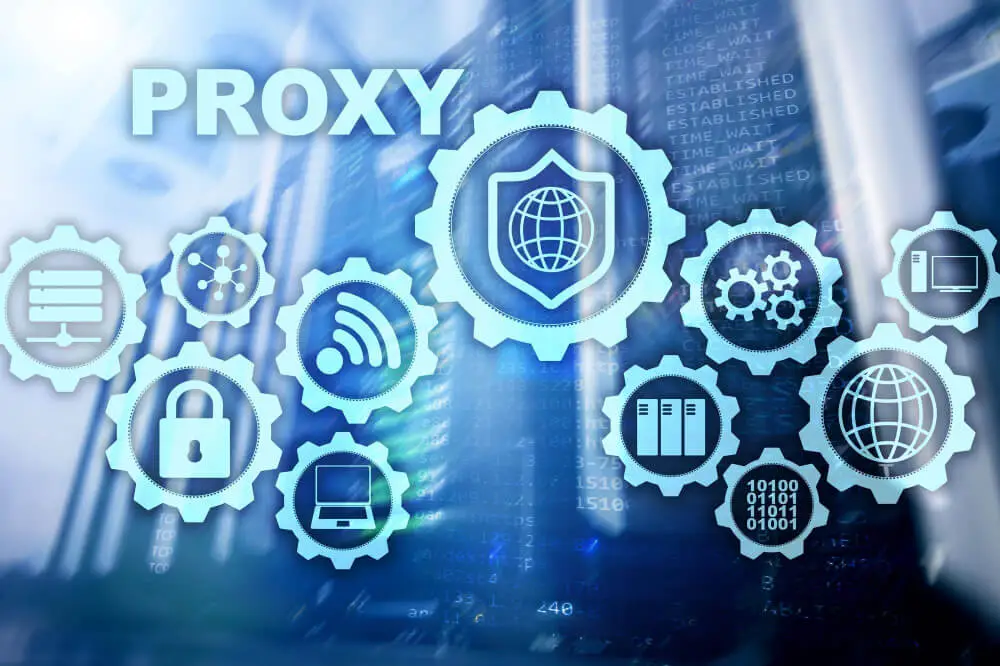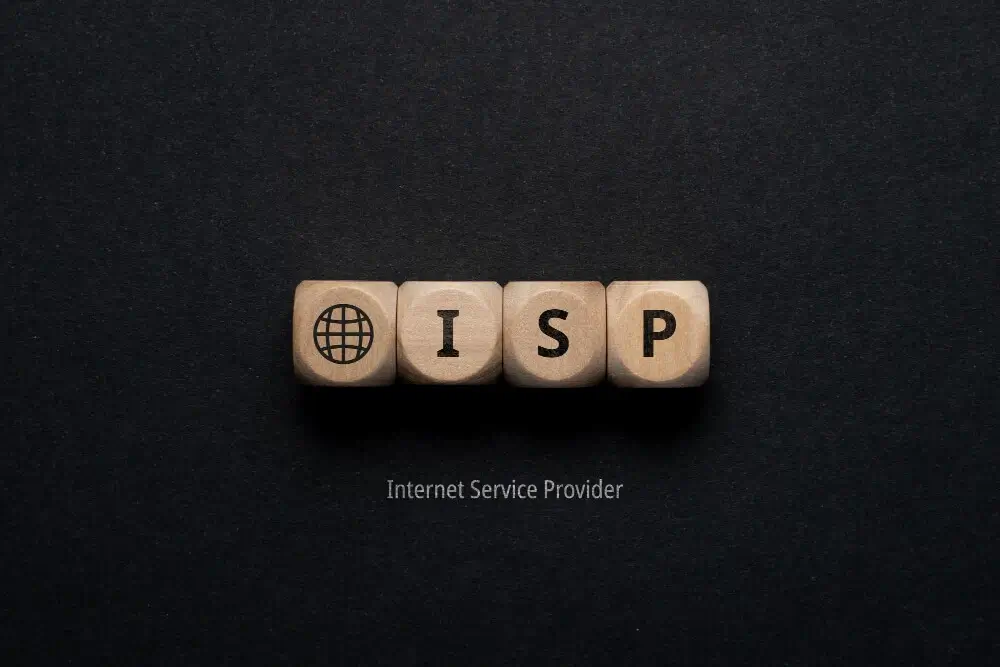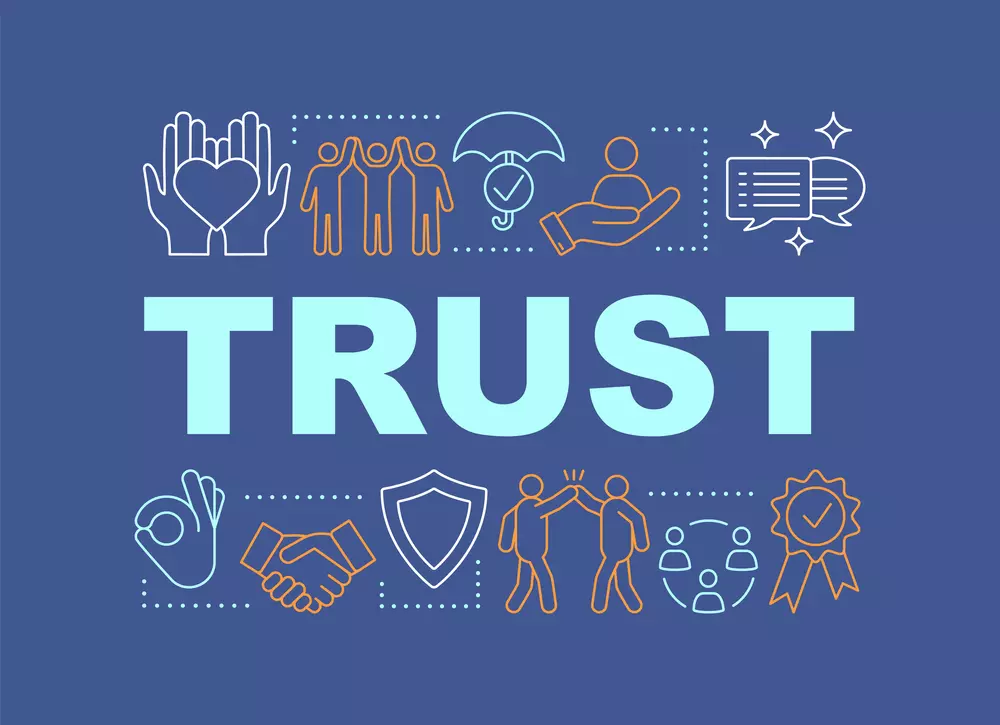
You don't have to know everything there is to know about proxies to start using them and gaining incredible value out of them.
Datacenter proxies verse residential proxies.

There are some topics that proxy services usually avoid, including ethics. However, if these terms don't ring a bell yet, don't worry. You don't have to know everything about proxies to get value out of them. But if there's one thing you should know, it's the significance of understanding the difference between a regular proxy and a great one, as well as the significance of a high-quality, ethical proxy service.
What are proxies?

Every internet connection is assigned an IP address. This address allows website owners and other internet users to determine who's visiting their site, where they're accessing it from, and what kind of device they're using.
But what if you don't want websites and other internet users to know this information about you? That's where proxies come in.
When you use a proxy, your IP address is masked by the proxy's IP address, which acts as a go-between for your computer and the website you want to access. A proxy gives you extra security, anonymity, and internet access in general.
The proxy server stands in for your real IP address, so the website sees the proxy IP address rather than your real IP address. While you can still access the same content you would with a home connection, the extra layer of security and anonymity people really enjoy is that the website sees the proxy IP address rather than your real IP address.
In fact, those are the main benefits of using a proxy, but what are some others? One has to do with something called geolocation. Choosing the geolocation of your proxies really enhances your experience.
Here's how it works.
With a proxy provider, you can choose the location of your proxies by Country, City, and Subent so that whenever you connect with them, it appears as if you are actually located there. This allows you to access web data, stream content, and do just about anything else from anywhere in the world.
For instance, even though you might be in Germany you might want to access content that's only available in California. So, you can get a proxy IP address from California to access that content.
Want to stream foreign films and shows? Access global content so you can conduct better brand research. Simply avoid bans? Which we'll talk about later.
You can do all of this and more by choosing certain geolocations for your proxies.
Let's discuss some common proxy types and the advantages and disadvantages of using proxies for a specific purpose now that we've established a general definition of proxies.
So, the first type of proxy I want to talk about is Datacenter Proxies.

What are they? And what are some pros and cons?
Datacenter Proxies are probably the most common type of proxy. Most Datacenter proxies are the most common type of proxy. If you are familiar with this conversation about proxies, Datacenter proxies are the ones that will immediately come to mind.
These IP addresses are associated with a proxy provider's Datacenter, not an internet service provider, or ISP. Even though websites can't see your actual IP address, they can still see that the proxy you're using is coming from a Datacenter server.
Datacenter proxies are typically less reliable but more affordable than residential proxies, and you don't have to pay extra for bandwidth. However, getting banned is a common problem people encounter when using them.
What's bandwidth?

Not to be confused with the internet or data speed. Bandwidth is the volume of data that can be transmitted over a connection. Some companies can charge extra for proxy services if you have a high volume use case, but not BestProxy.
Datacenter proxies are easier to buy in bulk, making larger projects much more manageable. And for most use cases, they really can't open door after door after door.
Ever heard of web scraping?
It's likely something you encounter every single day. If you've ever copied and pasted a link from one of your favorite websites, you've performed web scraping. You've already scraped the numbers of followers and followers from one of your favorite social media accounts if you've copied the figures. It makes web scraping a lot less difficult if you use a Datacenter proxy. You don't have to have a Datacenter proxy if you have 10 minutes to scan social media accounts to come up with general ideas for your company. Web scraping is made simpler with Datacenter proxies if you don't have time every day to examine social media accounts, every about me page, every comment, every like, every follower, every... Well, that doesn't sound like fun. It does to me.
So, what about Residential Proxies? What do they have to do with all of this?

As I said, Datacenter proxies are not associated with an internet service provider or ISP. Residential proxies are. If a website owner investigates the details of the residential proxy that you are using, they will realize that it is connected to a home internet service provider rather than a Datacenter Server.
This means that even though you're using a proxy, it looks as though you're a regular human just browsing the web. Since website owners don't want to risk banning real users from accessing their websites, using residential proxies is way less likely to get you banned.
It's significant if you're collecting a large amount of data or scraping the web extensively. With residential proxies, you can scrape the web fast and extensively. You may be banned from these websites quickly if you don't have the right kind of proxies and resources for your situation.
It's not because it's unlawful; they simply don't like robots. They have a good reason to dislike proxies accessing their data, but proxies are commonly used for good purposes. Proxies are frequently used for both good and bad purposes, and too many people use them for bad. Spamming, malware, stealing personal information, and similar activities are just a few of the issues. BestProxy does not endorse or permit such activities. Illegal or fraudulent activity is immediately detected by our platform, and we work with local law enforcement in all such instances. Don't do it.
So if you're going to scrape, pay attention to terms of services or things could end badly. And if you're going to use residential proxies to do it, use them to do it goodly.
So how do you decide between Datacenter verse Residential Proxies?

Well, Datacenter proxies are a lot easier to buy in bulk, which makes it great if you're on a budget.
If your proxy provider offers a diverse range of C-class IPs, you can still avoid bans. Designed for company use, and even more helpful for SEO,
C-class subnets with high diversity can help make up for Datacenter proxy's relative lack of authority. But if you're an enterprise-level company that relies on the highest quality data to keep your business going, you need residential proxies. They're more reliable. And if they're ethically sourced, they can offer your brand the highest level of protection.
Unprincipled proxy providers can procure residential IPs illicitly, which they then resell for profit. If you purchased these proxies and your supplier was caught, you would lose all of them, even though you had no involvement in the unlawful transaction. It's also common for big proxy firms, even some well-known ones, to aggressively market poorly sourced IPs at aggressive costs since their client users either A, weren't adequately compensated, or B didn't know that their IPs were being resold because they didn't comprehend what they were signing up for. This is called unethical IP sourcing. And unfortunately, it's all too common. However, that doesn't have to be the case.
So how can you tell if you're using ethically sourced IPs?

Even if you are using a residential proxy, you do not want to buy proxies from a provider that is not 100% transparent about how they source their IPs. BestProxy is leading the way in our industry as an ethical proxy provider. You can rest assured that our proxies come from Datacenters and that resident users sign up regardless of whether you choose residential proxies or Datacenter proxies. Some big proxy firms, even well-known ones, lure customers with low-cost, shadily sourced IPs because their resident users either weren't adequately compensated or did not even know that their IPs were being resold because they didn't understand what they were signing up for.
Visit BestProxy.net to start using our Datacenter or residential proxies today.

I hope that I have provided you with all the proxy information you need to start obtaining value from this incredible resource.
As your proxy partner, BestProxy is here for you. Check our blog posts and tutorials about proxy types, applications, and how proxies can be utilized for good. Please feel free to contact our excellent customer support team with any queries you may have.
